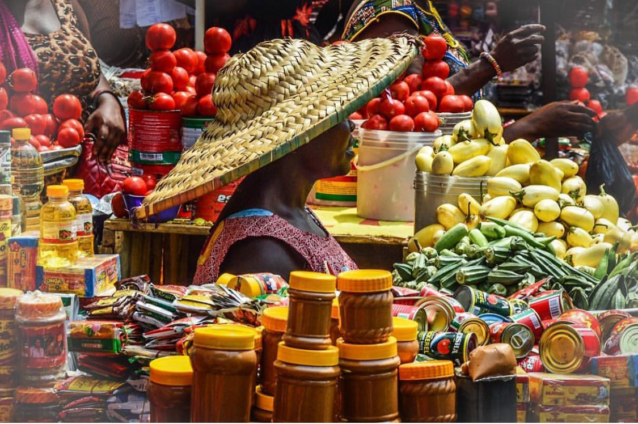The higher rate of inflation recorded for foodstuffs and transportation pushed inflation for the month of June marginally up by 0.3% to 7.8%.
However, despite the increase, the country continued to stay within the single digit inflation for the past three months.
This marginal increment will also not affect cost of living that much.
According to data from the Ghana Statistical Service, month-on-month inflation between May 2021 and June 2021 was 1.3%. This means prices of goods and services went up slightly within the period.
Whilst food inflation was 7.3%, that of non-food Inflation was 8.2%. Interestingly food inflation was lower in May 2021, whereas non-food inflation was higher in the same month.
The difference between food and non-food inflation was 0.9 percentage points, but the difference between food inflation for May and June 2021 was 1.9 percentage points.
Inflation for locally produced items was 7.9%, whereas iinflation for imported items was 7.0%. Inflation for local goods however surpassed inflation for imported items by 0.9 percentage points
In excess of 5.5 percentage points, two divisions {Housing, Water, Electricity and Gas (14.2%) and Transport (13.4%)} record inflation rates higher than the national rate of 7.8%. This indicates that the changes in food and transport prices are increasing at a faster rate.
On the other hand, three divisions record inflation {Housing, Water, Electricity and Gas (14.2%); Transport (13.4%); and Insurance and Financial Services (5.5%)} higher than the inflation for rolling average July 2020 to June 2021.
Water recorded a deflation rate whilst Fish and Other Seafood also recorded a deflation of 1.9%.
Regional inflation
The Greater Accra region continued to dominate the regions with the highest rate of inflation rate of 12.5%, largely influenced by prices of food and housing.
Northern region followed suit with an inflation rate of 11%. Ashanti region recorded same inflation rate as the national average of 7.8%.
Northern region continued to record higher year-on-year food inflation (16.2%), closely followed by Upper West 14.8% and distantly next is Greater Accra 9.9%.
Latest Stories
-
Gender Advocate Emelia Naa Ayeley Aryee Wins prestigious Merck Foundation Awards
4 mins -
South Africa bursary scandal suspects granted bail
26 mins -
Ecobank successfully repays $500m Eurobond due April 18
30 mins -
Re: Doe Adjaho, Torgbui Samlafo IV, call for Unity among Paramountcies in Anlo
33 mins -
Extortion and kidnap – a deadly journey across Mexico into the US
36 mins -
Rihanna says fashion has helped her personal ‘rediscovery’ after having children
53 mins -
Development Bank Ghana targets GH¢1bn funding for commercial banks in 2024
1 hour -
Shatta Movement apologises to Ghana Society of the Physically Disabled after backlash
2 hours -
Sammy Gyamfi writes: Tema-Mpakadan Railway Project; A railway line to nowhere
2 hours -
Bright Simons: Is the World Bank saving or harming Ghana?
3 hours -
CAF Cup: RS Berkane banned from entering Algeria because of a map of Morocco with its Sahara
3 hours -
The media isn’t doing what is expected of journalism – Sulemana Braimah
3 hours -
Truck driver who caused train accident jailed 6 months
3 hours -
Music review: Okyeame Kwame proves rap dexterity on ‘No Competition’
3 hours -
How a 23-year-old fooled the internet with an AI Kendrick Lamar diss track
4 hours

